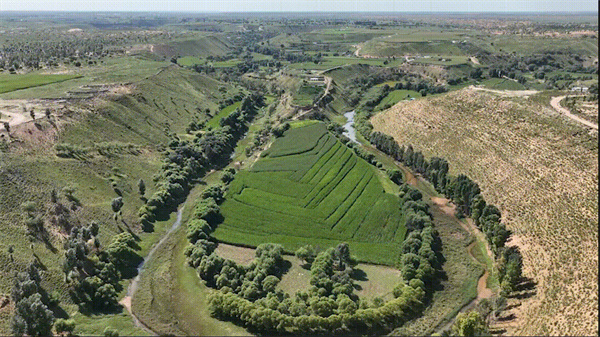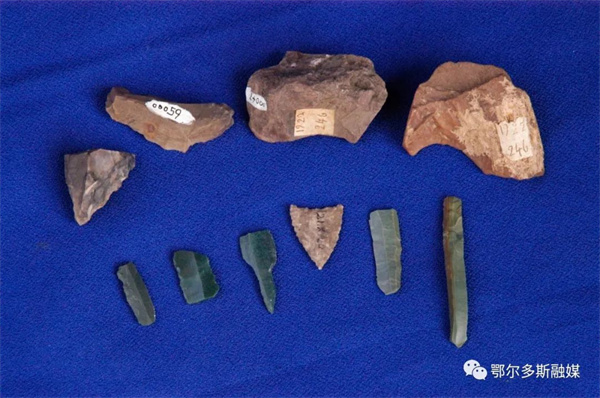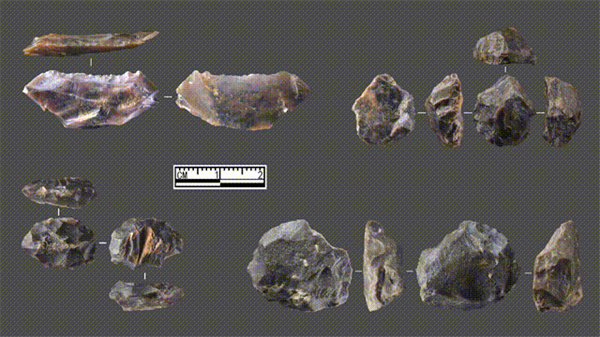Discovery of 'Ordos Tooth' unveils a cultural treasury


An aerial view of the Salawusu site. [Photo/Ordos Media Center]
The discovery of a fossilized tooth in Uxin Banner of Ordos city has filled the gap in China's archaeological knowledge of the Paleolithic age and has opened a new curtain on the history of ancient human studies in China and the wider Asian region.
In 1923, French scholars Emile Licent and Pierre Teilhard de Chardin conducted an investigation in Northwest China. In the Salawusu River basin, they collected numerous animal fossil fragments and Paleolithic artifacts. In their subsequent analysis, they were surprised to find a fossilized human infant tooth.
To commemorate this tooth, experts in paleoanthropology named it the "Ordos Tooth." And with this as a representative, the ancient human family that lived somewhere between 70,000-140,000 years ago has been dubbed "Ordos Tooth." They created the famous "Ordos Tooth" culture and left behind the beautiful Salawusu site.
Since then, generation after generation of scholars have come to Ordos for scientific research, gradually revealing the scenes of human life during the Paleolithic era.
From 1978 to 1979, the Lanzhou Desert Research Institute of the Chinese Academy of Sciences discovered six human fossils and some stone tools in the Maowusu Desert, solving the long-standing mystery of the geological layers of the Ordos Tooth's habitat.

The stone tools used by the Ordos Tooth community. [Photo/Ordos Media Center]
In 2001, the State Council designated the Salawusu site as one of the fifth batch of national cultural heritage sites.
In 2006, an international academic symposium on the Salawusu site in Ordos was held, bringing together domestic and foreign experts and scholars to discuss and research various topics including the site's geological layers, age and environment, the physical characteristics of the Ordos Tooth, Paleolithic culture, and the Sarawusu animal community.
Until now, more than 380 varieties of human fossils and stone tool fossils have been discovered at the site, as well as the fossils of more than 45 species of mammals and birds.
In recent years, Uxin Banner and Ordos city have always attached great importance to the research and protection of the site. From the establishment of the Salawusu archaeological site park to the Salawusu Ordos Tooth Culture Research Center, many new bases have been established.
In mid-August, the International Conference on the 100th Anniversary of the Discovery of "Ordos Tooth" is to be held in Uxin Banner, which is expected to promote the Ordos Tooth site to the world.

Some fossils are found in the Salawusu site. [Photo/Ordos Media Center]







